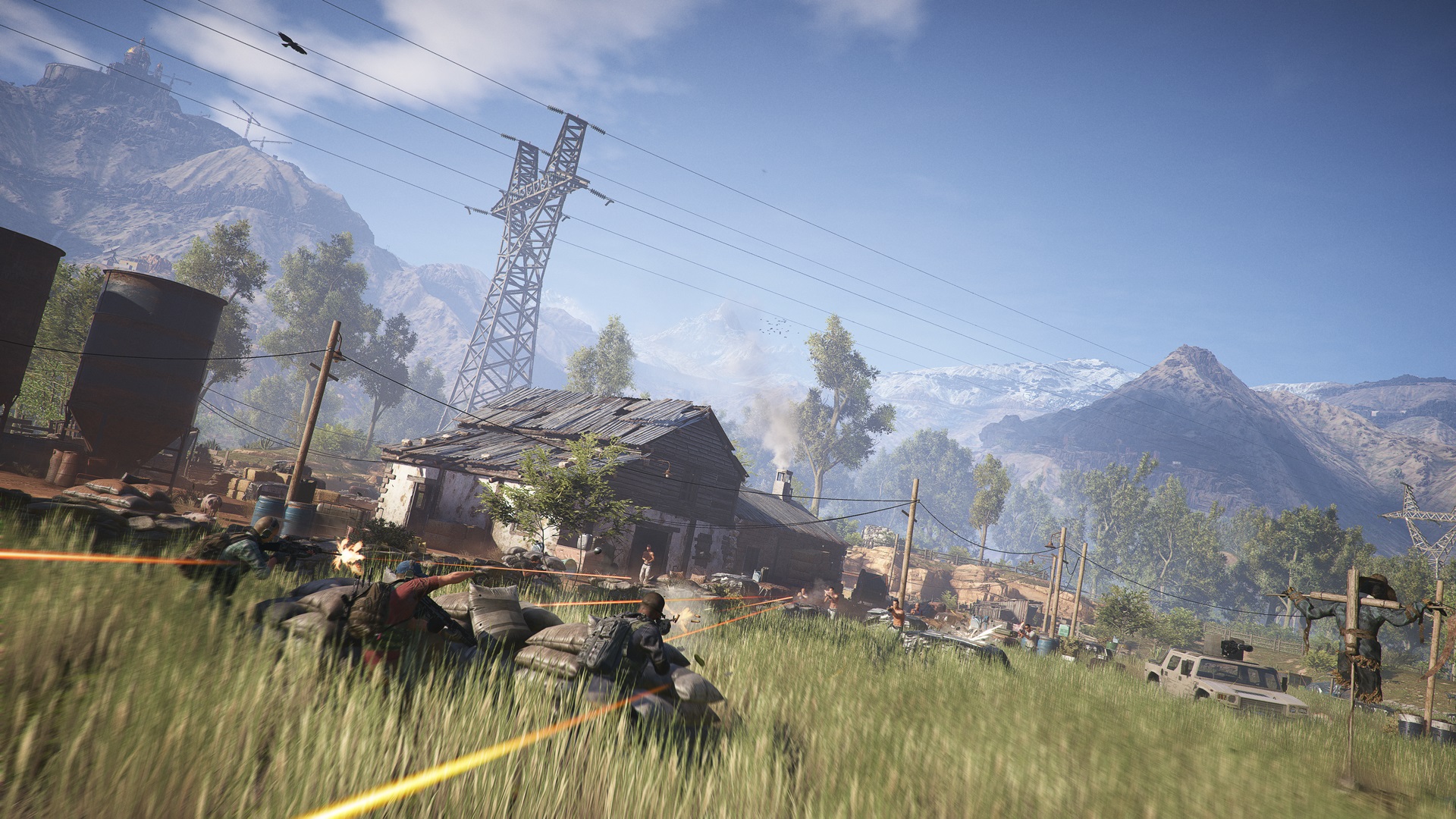Earlier this month, when the Bolivian government demanded that the French government take action against Ubisoft over Ghost Recon: Wildlands, a good many people laughed. The South American country was disgusted at its portrayal as a territory solely comprised of cartels and cocaine empires and considered legal action. Ubisoft, for its part, admitted that it imagines a “different reality” of Bolivia in the game though it hopes that Ghost Recon: Wildlands would represent the country’s “beautiful topography.”
Wildlands is most definitely a good-looking game. The player character, a member of the elite United States Special Ops squad, gets to experience some truly stunning views.
As they dismantle the Santa Blanca drug cartel piece by piece, holding guns to baddies and doing a ‘duty,’ players will barrel past epic vistas, perch atop tremendous mountains peaks and blitz across breath-taking bodies of water. If you ignore the rest of the game then this could well function as a scenery-focused campaign on behalf of the Bolivian tourist board.
Hooah!
But unfortunately you can’t take one bit and leave the others as Wildlands is a jingoist nightmare. It’s cut from the same, ‘hooah!’ bleating cloth of Call of Duty in that it stresses that America – and America alone – can save this poor little country. It portrays Bolivia’s lone resistance unit as utterly useless, its official anti-drug squad as spineless fools on the cartel payroll and props its group of protagonists as gods who will be prepared to defend this, and any other South American country, from the scourge of drug trafficking.
Ghost Recon: Wildlands is the Freedom Boner gif [slightly nsfw image at the link, obvs] if it grew an open-world, some tactical shooting and a decent character customisation option (it features playable female characters and non-white characters too) that could almost make you forget about its core premise.
Any game or piece of media that portrays people of colour in such a poor light is upsetting on one hand and dangerous on the other. As discussed in ‘A Long Way to Go: Minorities and the Media’ by Carlos Cortes, Professor Emeritus of history at the University of California, Riverside, mass media has long reinforced and introduced stereotypes about people of colour, with the association of Latin people and gangs being one of the most prevalent.
Propagandist Rot
From the less discussed implications of mental health (minorities believing the enforced idea that they are less worthy or destined for a life of crime) to the legislative (like Trump’s travel ban) and the downright insulting (the suggestion that all Mexicans are drug dealers or rapists), pieces of media like Ghost Recon: Wildlands can have a major impact.
While I don’t expect the average Wildlands player to actively do something about those Bolivians, it’s just another drop in the festering bucket of propagandist rot. It’s the same rot that already makes people genuinely believe in American exceptionalism (the fact that the game still has all of these traits despite being made by Ubisoft France is a pretty good example of how potent that line of thinking can be). It’s also why some will fail to think of the serious implications of wading into a country with a gun and killing every single criminal dead. And yes, even if the player takes the quiet approach it still counts.
though Ghost Recon: Wildlands may take place in 2019, in ‘alt-Bolivia’ as some have called it, it obviously fails to consider the innocent uses of the coca plant (which also produces cocaine) or what is already being done to curb drug trafficking in the country. A great deal of coca is grown for chewing and for tea and the United States government already contributes $150 million per year to the eradication of the plant. But the game ignores this as well as the fact that Bolivia has introduced national policies to address those affected by drug trafficking (including coca farmers and drug users themselves).
Although Wildlands is fictional (for example Bolivia becomes the largest coca producer; currently it is just the third largest), games are not produced in a vacuum. Games have social consequences and disregarding the context of its War on Drugs to justify a virtual militaristic power fantasy is less a case of wild lands and is just wildly irresponsible.
Jasmine Henry
Latest posts by Jasmine Henry (see all)
- Twitch Spambot Drama Highlights Another Side to Harassment Issue - January 25, 2018
- Overwatch League Skin Unlocks Have a Dumb ‘Easter Egg’ - January 11, 2018
- Call of Duty: WWII’s Female Soldier ‘Rousseau’ Deserves Her Own Spin-Off - December 8, 2017

